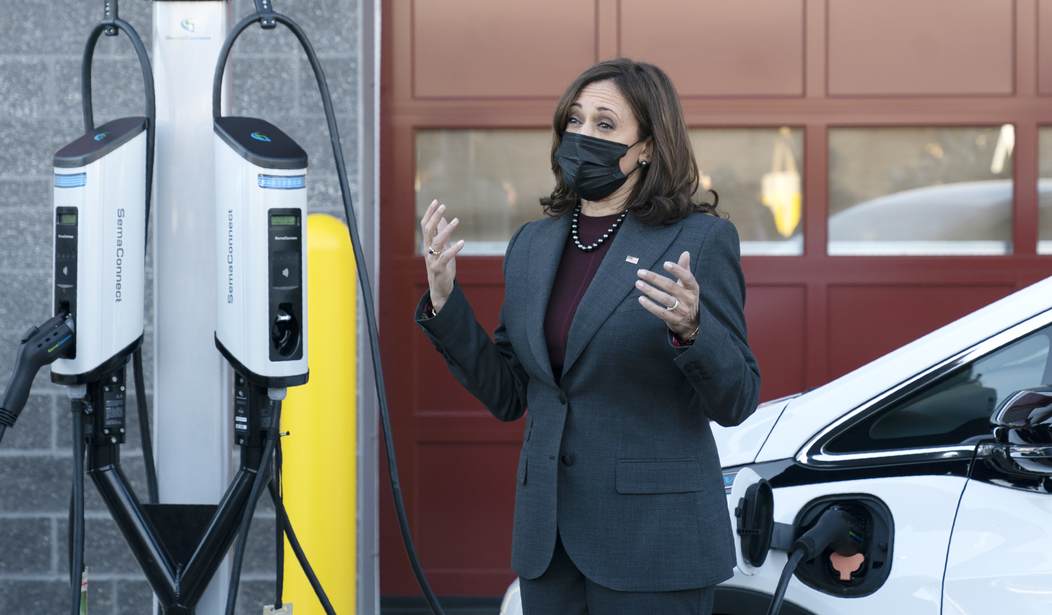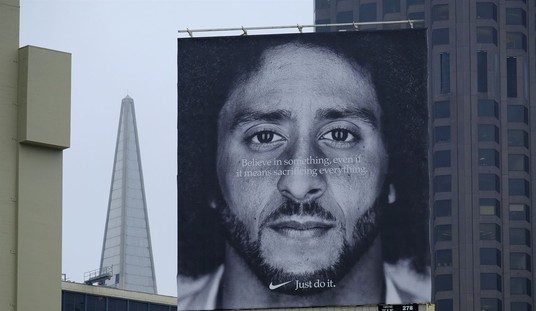Joe Biden keeps pushing them to try to appeal to the climate alarmists in his base and the press merrily sings along with his talking points, but the sales figures do not lie. People are not coming around to the idea of being forced to switch over to electric vehicles and giving up their internal combustion engine cars and trucks. The widespread pushback against the President's demands becomes clear in the results of the most recent Associated Press/NORC poll on the subject. Biden and his handlers will no doubt be saddened to learn that a plurality said that they are "not too likely" or "not at all likely" to purchase an EV when they next shop for a new vehicle. (Assuming any of them can even afford a new car in this economy.) When you look at the number of people who have already made such a purchase, the figures are even worse.
Many Americans still aren’t sold on going electric for their next car purchase. High prices and a lack of easy-to-find charging stations are major sticking points, a new poll shows.
About 4 in 10 U.S. adults say they would be at least somewhat likely to buy an EV the next time they buy a car, according to the poll by The Associated Press-NORC Center for Public Affairs Research and the Energy Policy Institute at the University of Chicago, while 46% say they are not too likely or not at all likely to purchase one.
The poll results, which echo an AP-NORC poll from last year, show that President Joe Biden’s election-year plan to dramatically raise EV sales is running into resistance from American drivers. Only 13% of U.S. adults say they or someone in their household owns or leases a gas-hybrid car, and just 9% own or lease an electric vehicle.
To be fair, gas/electric hybrid vehicles are doing slightly better than straight EVs, but not by a lot. Of those polled, just 13% said that they or someone in their household owns or leases a hybrid vehicle. Note that they are polling those who lease as well as purchase, suggesting that at least some of them are still making up their minds. Only nine percent - less than one in ten - said that they or someone in their household owns or leases a straight EV. Those numbers are down from the initial rush of shoppers who decided to roll the dice on an EV during the initial push in 2021 and 2022.
Why would these numbers not be trending in this direction? There isn't all that much to love about EVs at this point and people aren't stupid. They cost considerably more than gas-powered vehicles on average even with the "generous" federal subsidies being handed out to bribe people into buying them. And those subsidies are going to come to an end someday. Also, the repeated images of vehicles with those huge batteries going up in flames that keep showing up in the media obviously aren't helping. People living in areas prone to flooding are particularly susceptible to this.
Charging stations remain a pressing concern as well. One poll respondent from Cincinnati described the thought of "getting stuck in the driveway in the winter with an EV that won't run" as being "worrisome." Even the AP felt compelled to acknowledge that as temperatures fall, batteries charge more slowly and don't hold as much power. This reduces the total range and increases recharging time. The Cincinnati resident said that he is "considering" a hybrid because he would retain the option of using the gas-powered engine in the winter, but he's still unsure.
Half of the people surveyed cited "range anxiety" as one of their concerns. That term has evolved to encompass worries over both how far the vehicle will make it between recharging stops and the availability of public recharging stations. Even if the driver manages to locate a station, it has been widely reported that many of the chargers simply don't work and they are not repaired frequently enough to even keep up with current demand levels.
This brings us back to the question of federal government mandates in this field. Biden's EPA has declared that 56% of all new vehicle sales be electric by 2032, along with at least 13% plug-in hybrids. But what do they plan to do if people simply refuse? If these polls are accurate, nowhere near half of the country is ready to buy a straight EV or even a hybrid. If eight years from now, people are still largely purchasing internal combustion engine vehicles, and the number of EVs being sold remains below 20%, what can the government do about it? Will they tell the state police to start randomly issuing tickets to people at gas stations? Will they fine the automakers for being unable to sell products that the public doesn't wish to purchase? None of this makes any sense. Of course, since it's coming out of the Biden administration, what else did I expect?








Join the conversation as a VIP Member